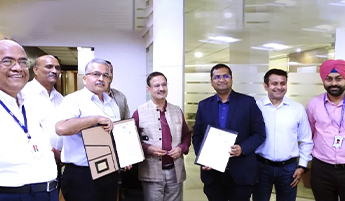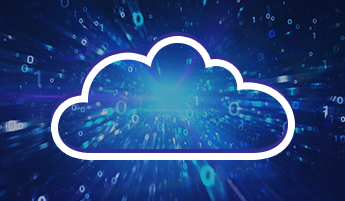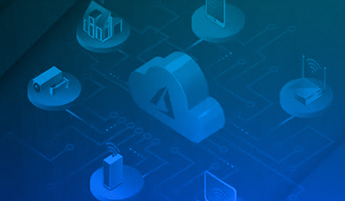As the world shifts toward smarter energy solutions, smart meters have emerged as a crucial technology for modernizing how we consume and manage energy. These advanced devices are not only transforming the way we interact with energy but are also helping utility companies improve efficiency and sustainability.
In this blog, we’ll explore the global compliance standards for smart meters, including India, the different types of smart meters available, their benefits, and the challenges they pose. Finally, we’ll dive into how VVDN is empowering OEMs worldwide with end-to-end development and manufacturing of next-generation smart meters.
What is a Smart Meter?
A smart meter is an advanced energy meter that records electricity, gas, or water usage in real time. Unlike traditional meters, which require manual readings, smart meters send data directly to utility companies, enabling more efficient energy management.
Compliance and Standards: A Global Perspective
Smart meters are subject to various compliance standards depending on the country. Here’s a brief overview of some key regions:
1. United States
- Standards: The National Institute of Standards and Technology (NIST) has established a framework for smart grid interoperability, ensuring that smart meters can communicate seamlessly with different devices and networks.
- Regulatory Bodies: The Federal Energy Regulatory Commission (FERC) oversees electric utilities, while state public utility commissions regulate local implementations.
2. European Union
- Standards: The EU has established the Smart Metering European Framework, which outlines technical specifications for smart metering systems. Key standards include the EN 62056 series for data exchange and the IEC 62053 series for metering accuracy.
- Regulatory Bodies: The European Commission provides directives to member states for implementing smart meter systems.
3. India
- Standards
India’s smart meter standards are governed by the Bureau of Indian Standards (BIS), Central Board of Irrigation and Power (CBIP), and the Department of Telecommunications (DoT). Key standards include:
-IS 16444: Covers technical requirements for smart meters, including accuracy, tamper detection, and two-way communication capabilities, with specifications for single-phase and three-phase smart meters.
-CBIP-325: Provides technical guidelines for meter reliability, durability, and communication protocols, ensuring performance under India’s environmental conditions.
–MTCTE (Mandatory Testing and Certification of Telecom Equipment): Focuses on compliance for smart meters with communication modules, addressing security, EMI/EMC, and interoperability standards.
- Regulatory Bodies:
-Bureau of Indian Standards (BIS): Develops and enforces IS 16444 specifications to ensure quality and interoperability of smart meters.
-Central Electricity Authority (CEA): Governs the deployment and rollout of smart meters as part of India’s smart grid initiatives.
-Department of Telecommunications (DoT): Certifies smart meters with embedded communication modules under MTCTE to ensure telecom compliance.
-State Electricity Regulatory Commissions: Monitor and regulate smart meter implementation at the state level.
4. United Kingdom
- Standards: The Smart Meter Implementation Programme (SMIP) sets out technical specifications and interoperability requirements. The Data Communications Company (DCC) ensures secure data transmission.
- Regulatory Bodies: Ofgem, the energy regulator, oversees the rollout and compliance of smart meters.
5. Australia
- Standards: The Australian Energy Market Operator (AEMO) has developed the Metering Code, which includes standards for metering installation, maintenance, and data exchange.
- Regulatory Bodies: The Australian Energy Regulator (AER) enforces compliance and supports the transition to smart meters.
Types of Smart Meters
Smart meters can be categorized based on the type of utility they measure:
- Electric Smart Meters: Measure electricity usage, enabling real-time monitoring and demand response capabilities.
- Gas Smart Meters: Track natural gas consumption, providing consumers with insights into usage patterns and potential savings.
- Water Smart Meters: Measure water usage, helping to detect leaks and promote conservation efforts.
- Multi-Utility Smart Meters: Combine functionalities to measure electricity, gas, and water, offering a comprehensive view of a household’s resource consumption.
How Do Smart Energy Meters Work?
Now that we’ve covered the basics, let’s take a closer look at how smart energy meters function.
Smart energy meters work by measuring energy usage in real time using advanced metrology components to ensure accuracy. The core components include:
- A microcontroller unit (MCU) that processes data.
- A communication module (e.g., RF, Zigbee, or cellular) for secure data transmission to utility providers.
The meter continuously captures key parameters like voltage, current, power, and energy usage. It transmits this information at regular intervals to central utility systems, where it is analyzed for billing and load management.
Smart meters also enable two-way communication, allowing utilities to send commands (e.g., tariff updates or remote disconnections) and receive alerts. Built-in features such as encryption and tamper detection mechanisms ensure secure and reliable operation.
By eliminating the need for manual readings, smart meters improve operational efficiency and provide consumers and utilities with real-time energy insights.
Benefits of Smart Meters
- Real-Time Data Access: Consumers can monitor their usage in real time, leading to more informed decisions about energy consumption.
- Cost Savings: By understanding usage patterns, consumers can shift usage to off-peak times, reducing bills.
- Environmental Impact: Smart meters contribute to energy efficiency, reducing waste and lowering carbon footprints.
- Improved Reliability: Utilities can quickly identify outages and maintenance needs, leading to faster service restoration.
Why VVDN?
VVDN’s power electronics team brings deep expertise in the design and development of smart meters. With a strong focus on compliance and standards, VVDN provides OEMs with end-to-end product engineering, including Hardware design, Firmware development, Mechanical design, Testing and certification, and Mass production
Our next-generation smart meters are designed to meet global compliance requirements and help OEMs accelerate their time to market.
If you’re looking to develop and manufacture smart meters, feel free to contact us at info@vvdntech.com.





















